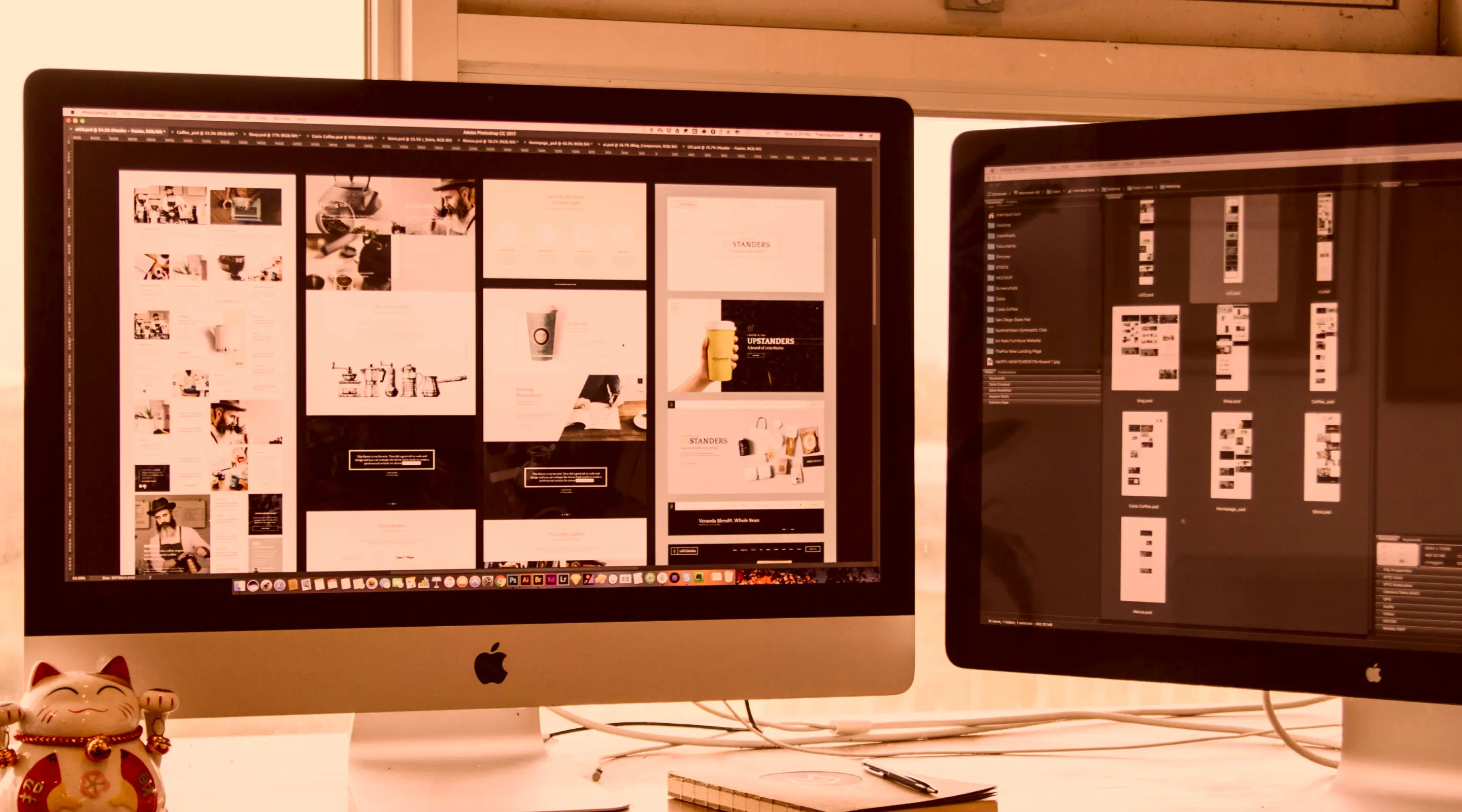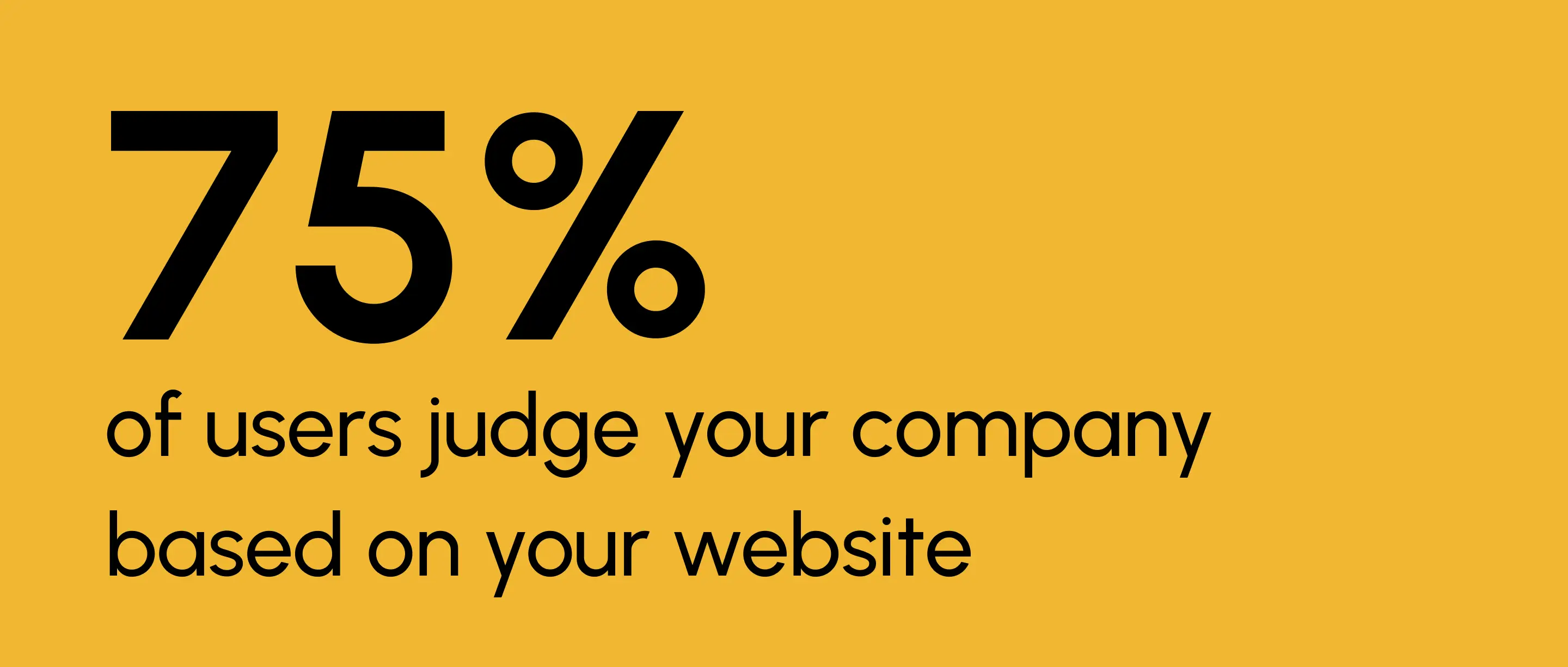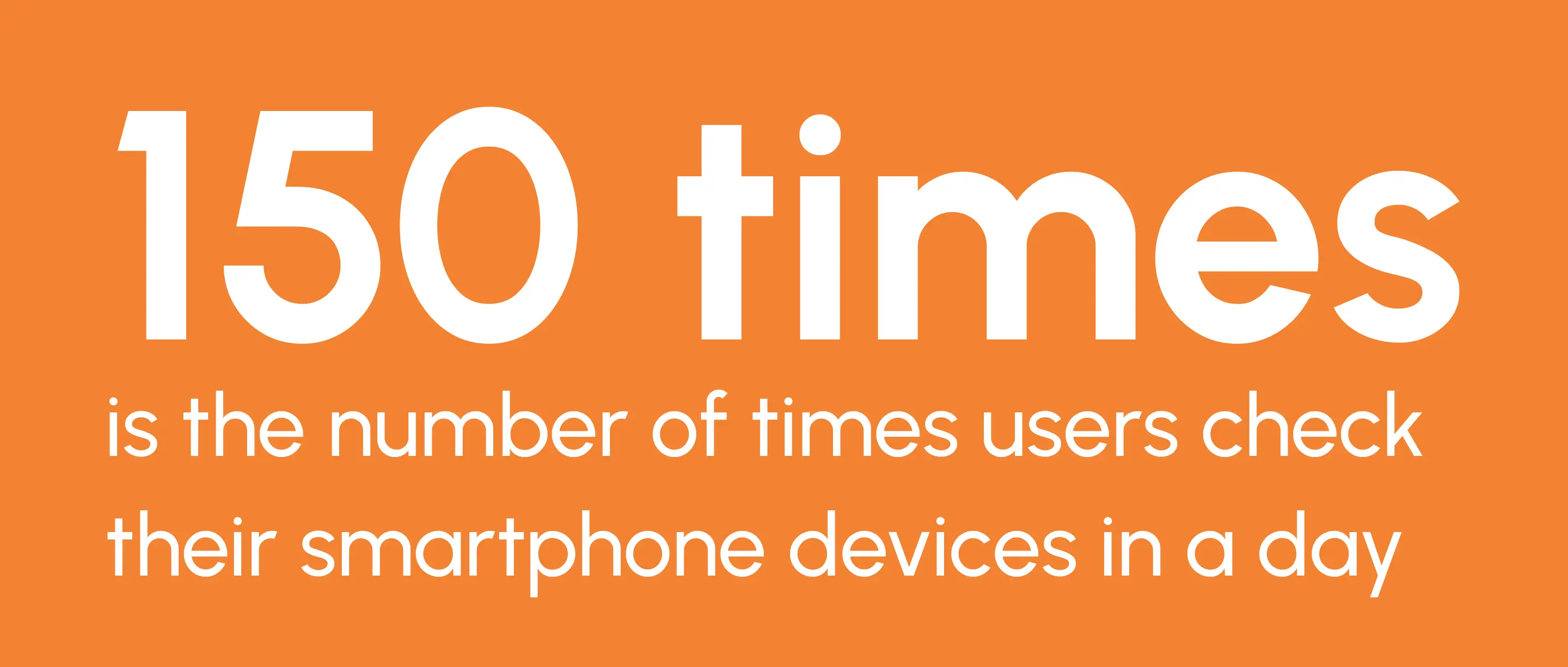
Why Is Web Design important?
75% of users judge credibility by design. Here’s why your web design can make or break your business in 2025.


Table of contents
Consumers rely on online research before making purchasing decisions. Web design has become a deciding factor in whether users stay, engage, or bounce away.
Did you know that 75% of users judge a company’s credibility based on its website design? That’s not just a statistic — it’s a wake-up call for businesses to treat web design as a strategic investment, not an afterthought.
At ALF Design Group, a UX-first Webflow agency in Singapore, we’ve seen first-hand how great design shapes perception, improves usability, and directly influences conversion.
In this guide, we’ll explore why web design matters — and how to use it to build trust, improve SEO, and future-proof your business.
What Is Website Design?

Web design determines the look, feel, and usability of your website.
It involces planning layouts, choosing colours and typography, structuring content and ensuring every interaction feels intuitive.
In other words, web design blends creativity with strategy. A great website isn't just visually pleasing, it has to be functional, responsive and aligned with your business goals.
Web design serves three purposes:
- Enhancing brand identity: Making your business memorable and recognisable
- Improving usability: Ensuring users find what they need effortlessly
- Driving conversions: Turning visitors into leads, subscribers or customers
Why Is Web Design Important?
As you are creating your first website or redesigning your website, it is important to know how this impacts your audience and your business. Effective web design is crucial for building a successful business online.
1. First Impressions Matter

Your website is often the first interaction potential customers have with your business and first impressions happen in under three seconds.
If your homepage feels outdated, cluttered, or hard to navigate, users instantly form negative assumptions. A polished, user-friendly site communicates professionalism, reliability, and attention to detail.
Why it matters for Singapore businesses:
With countless alternatives just a Google search away, your design needs to immediately capture trust. A dated website signals that your brand might be inactive or irrelevant.
Pro Tip: Audit your homepage yearly to ensure visual trends, messaging, and layout match modern UX standards.
Related Reading: Web Design Best Practices 2025: A UX-Centric Guide
2. Engagement, SEO & User Experience
A well-designed website is supposed to perform well.
Engagement
Good design reduces friction, keeps visitors exploring and increases dwell time. All key engagement metrics that Googleconsiders for ranking.
SEO
From site speed to mobile responsiveness, design directly affects SEO. Search engines prioritise websites that load quickly and provide a smooth user experience.
Core SEO Design Factors:
- Mobile-first layouts: Essential since 85% of Singaporeans browse via mobile
- Fast loading speeds: Even a one-second delay can reduce conversions by 20%
- Structured content: Proper headings (H1-H3), meta descriptions and image alt text help search engines index pages efficiently
Related Reading: How UX/UI can improve your website's conversions
3. Building Trust & Credibility
Would you trust a business whose website looks broken, generic, or outdated? Probably not, and neither will your potential clients.
A well-designed site builds confidence, showing that you’re credible and dependable. Design elements like consistent branding, testimonials, and clear contact details help visitors feel safe engaging with your brand.
Case Study: BigFundr’s Fintech Redesign
BigFundr, a property-backed investment platform in Singapore, approached ALF Design Group to improve credibility and usability.
The challenge: Their old site felt technical and cold (it was build on ODOO). It didn’t build trust with new investors.
We redesigned the platform using clear UX flows, trust-driven visuals, and transparent CTAs. Within 6 weeks:
- Average session duration increased by 27%
- Mobile engagement rose by 35%
- Investor sign-ups doubled in the first quarter after launch
“A modern, transparent design instantly reassures users that your business is legitimate.”
Related Reading: Why Webflow Is the Best Choice for Web Design in 2024
4. Competitive Advantage In A Crowded Market
Let's be honest here. Singapore is highly competitive. From F&B startups to fintech and healthcare. Your competitors are already investing in web design to attract attention and credibility.
An outdated site can make even the best product or service invisible. Modern, user-focused design positions your business as innovative and trustworthy, encouraging users to choose you over a competitor.
Pro Tip: Benchmark your competitors’ websites. Identify what works visually and where they fail on usability — then design a superior experience.
Related Reading: Website Design Pricing in Singapore: What to Expect in 2025
5. Building Consistency &Brand Recognition
Every touchpoint users experience; from your homepage to social media — should reflect the same visual and emotional identity.
Consistency builds familiarity, and familiarity breeds trust.
Key Brand Design Practices:
- Use consistent colours, typography and tone of voice
- Define a design system or brand kit to align digital and offline materials
- Apply the same design logic across landing pages, emails and ads.
At ALF Design Group, we help businesses create scalable Figma-to-Webflow systems, ensuring brand cohesion across every platform.
6. Essential Elements of Good Web Design
1. Good Navigation
Visitors have short attention spans. Clear menus, logical flow, and a visible search function help them find what they need fast.
2. Responsive Design
A responsive layout ensures usability across devices — from iPhones to tablets. In Singapore, where users switch between mobile and desktop frequently, seamless responsiveness is vital.

3. Purposeful Visuals
High-quality visuals enhance engagement but should always serve a purpose. Use imagery that supports messaging rather than decorates.
Customers are 10 times more like to interact with interactive visual elements than text.
4. Quality Content
Good design needs good copy. Write with clarity, empathy, and search intent. Use headings and bullet points for scannability.
5. Page Speed
Even the most beautiful website fails if it loads slowly. Compress assets, remove unused scripts, and test with Google PageSpeed Insights or Webflow’s performance tools.
Amazon found out that for every 100ms delay cost them 1% in sales which is equivalent to a huge amount of money.
The Web Design Process
At ALF, every project follows a structured UX-first approach:
- Planning and Research: Understand the clients' goals, audience and brand
- Wireframing and Prototyping: Create Figma wireframes to visualise user flows
- Design and Development: Build high-fidelity layouts and translate them into Webflow
- Testing and Iteration: Evaluate usability, loading speed and accessibility
- Launch and Maintenance: Deploy live and provide continous improvements
This process ensures each website we build isn't just visually strong but user-validated and business-ready.
FAQs: Web Design Importance
Why is web design so important for my business?
Your website forms the first impression of your brand. A well-designed site builds trust, increases engagement, and drives more leads.
How does web design affect SEO?
Design impacts speed, mobile responsiveness and structure. All are key ranking factors for Google.
How often should I redesign my website?
Visually every 2–3 years, technically every 12–18 months. Regular updates signal freshness to both users and search engines.
What's the biggest mistake businesses make with web design?
Treating it as a one-time project. Great websites evolve through continuous UX testing and data-driven updates.
Conclusion: Your Website Is Your Brand's First Impression
It defines how your customers perceive you, how search engines rank you, and how effectively your business converts leads into clients.
At ALF Design Group, our UX-first approach ensures that every website we create is strategic, human-centred, and performance-driven.
Whether you’re a startup building your first online presence or an established brand ready to modernise, great design is your biggest competitive advantage.
Ready to transform your digital experience? Let's design something exceptional together.
{{upgrade-website="/directory"}}
First Published On
June 27, 2024
Categories
Resources
Related Articles
Deep dive into our latest news and insights.



.webp)

